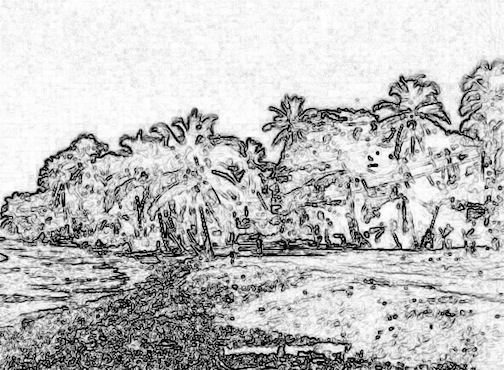By Ilio Durandis
CJ Contributor
THE BEGINNING OF A NEW YEAR usually brings with it new hope. A country like Haiti, that has been trying very hard to change its image in the international media, simply cannot seem to get a break, even at the dawn of a new year.
The current government seems to have made tourism a major priority, in order to revive a moribund economy. The biggest trouble in prioritizing tourism in a fragile state, such as Haiti, is the lack of control of so many key essentials that could make it work.
For starters, Haiti lacks all the major basic infrastructure, such as decent roads to affordable hotel rooms. From downtown Port-au-Prince (PAP) to Leogane, a road of only 22 miles, on an average day, it can take more than two hours to travel. If there is any ongoing road work happening, it’s almost impossible to make it at a decent time.
On a tourism level, the road from Port-au-Prince to Leogane is the gateway to four important departments, the South, South-East, Nippes and Grand’Anse. When tourists get stuck in traffic, not only that they are spending less, they are also getting very furious and regretting their decision. The same basic roadblock is the norm traveling from PAP to the north.
Another aspect of tourism that is currently missing for Haiti is the lack of an organized tourism chamber. The government in its effort to revive tourism is also taking too much of the burden for promoting the industry. Yes, if tourists were to come, it would help boost the revenues of the state, but for tourism to really take off in Haiti, it would have to be mainly a private industry and not one that is under the influence and control of the state. The absence of a private tourism chamber makes it very hard for a group of visitors to arrange serious vacations to Haiti.
It is true that Haiti is one of the most beautiful places, not only in this region, but throughout the world. It offers a lot that will be hard to find anywhere else in the world, such as a rich history and art, great cuisine, sandy beaches, and one of the friendliest people. However, to fully experience all of these, a lot of rudimentary work must be done.
It’s not that Haiti needs to build super-highways or luxurious tourism villas to be a major player. Nonetheless, it is important that the basics are taken care of, such as better government regulations on the car rental sectors, appropriate and safe public transportation, better control of traffics in major metropolitan areas, more output of electricity, especially in the touristic areas, cleanliness of cities and major historical sites. If the government could focus on these areas, and partner up with a private tourism chamber for the promotion of tourism, foreign vacationers could to take Haiti seriously on its bid for tourism.
Haiti was dealt a public relations setback with two warnings against traveling to Haiti that were put out by the Canadian and American governments. Quickly, the Haitian government released a formal rebuttal of these claims. But the damage already seemed to have been done.
These travel warnings are a major setback. For tourism to have any significant impact in Haiti, the country would need vacationers from both Canada and the United States. And when those governments issued travel warnings, it was the equivalent of being stabbed in the heart.
Gambling on tourism is not a sure bet to revive a devalued economy, especially for a country that does not have the basics to attract foreign tourists. There are too many tangibles that the host country does not control, especially the flow of incoming visitors. At this point, many developed countries are having a hard time economically, and prospective tourists are very careful about where and how they should spend their money. And Haiti must also focus more on the 300,000 people still homeless after the earthquake, and the millions who are unable to live a decent life or find proper work.
The President once said, Haiti is too rich to be poor; and indeed, Haiti’s people are too strong to be an afterthought, too intelligent to not be challenged and too valuable to not be valued. These travel warnings should be a wake-up call to focus on what matters most, the prideful reconstruction of what was once the Pearl of the Caribbean. Let the hard work to rebuild this nation be the rebuttal to those foreign warnings.
Ilio Durandis, a Caribbean Journal contributor, is the founder of Haiti 2015, a social movement for a just and prosperous Haiti. He is also a columnist with The Haitian Times.
